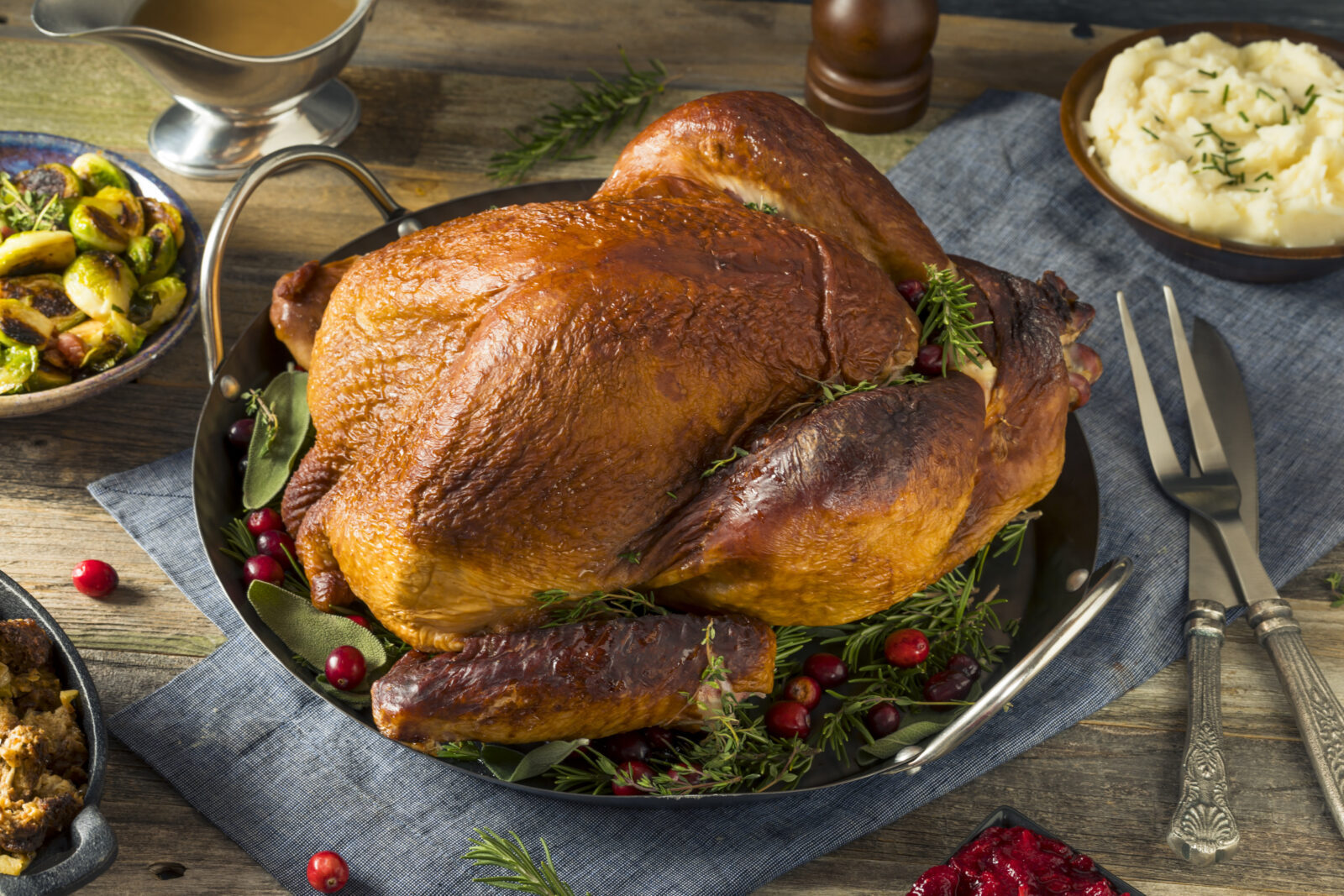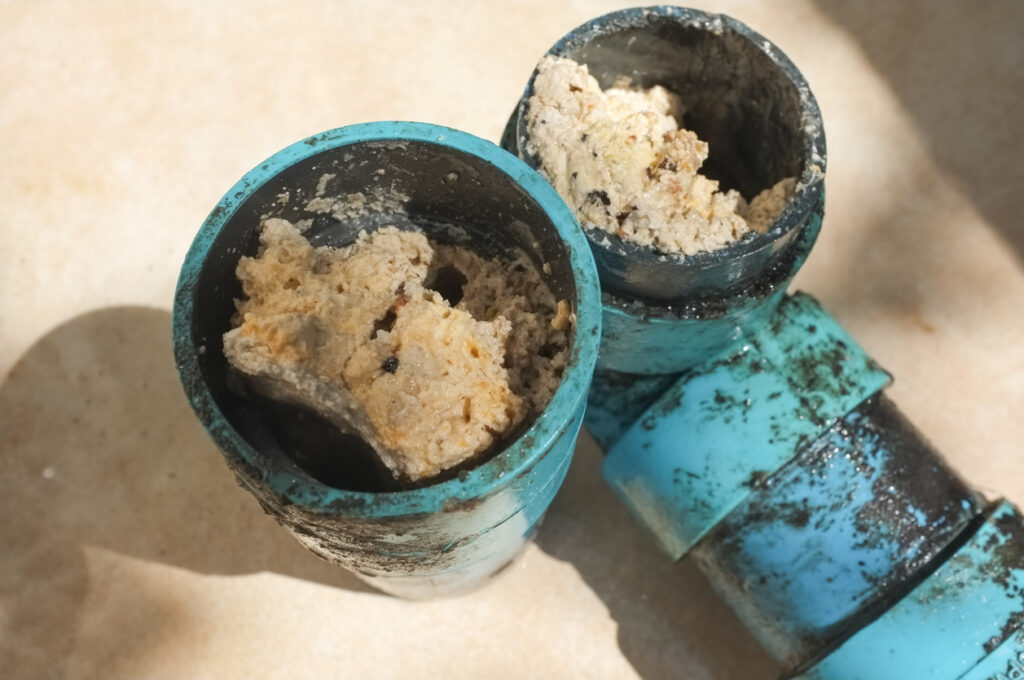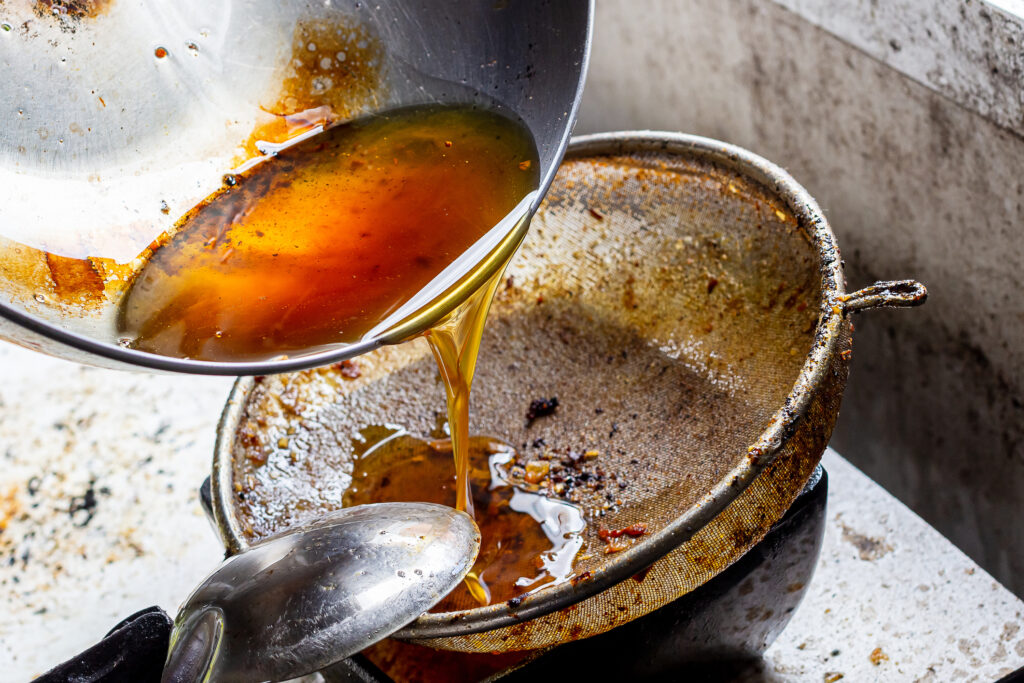Avoid The Holiday FOG!
 November 23, 2022
November 23, 2022No, we’re not talking about the brain fog and sleepiness that too much turkey and football brings on. We’re talking about the fats, oils and grease that commonly get dumped down the drain during those big holiday meals.
Many plumbing companies across the country report that Thanksgiving and the days after it are among their highest-call days of the year. The culprit: solidified fats, oils, and grease (FOG) clogging up sewer and drain lines. The trend of frying a whole turkey in oil has compounded the problem. Just imagine getting the bill for pulling your plumber away from his holiday meal!
But FOGs don’t just cause problems in your house: They also make their way into public sewer lines and cause messy, expensive blockages.
In worst-case scenarios, these blockages can cause sewage to back up into homes and neighborhoods. It’s smelly, unpleasant, unhealthy … and totally avoidable.
Clogging the System
“From January 1 through October 31 of this year, in the City of Allentown Division, Lehigh County Authority crews have responded to 162 service requests for sewerage-related problems,” says Susan Sampson, LCA’s communications manager.

“Of the 162 callouts, 125 were private property issues/blockages, like the grease blocking the pipe in the photo at right. In these cases, the problem is on the homeowner’s side, and the customer would pay a service visit fee.
“If the customer requests a service visit, LCA charges a $50 fee if the problem is determined to be on the customer’s property. If the service call is after hours or on a holiday, the fee is $150. There is no charge if the issue is found to be with the public sewer system.”
“In 2021, LCA crews responded to 238 City customer calls for sewerage-related problems,” Sampson says. “Of the 238 service visits, 194 calls were customer issues; the remaining 44 were public system issues.”
Oil and Water Don’t Mix!
And as we mentioned, the problem intensifies around the holidays. Each turkey alone can produce about 20 gallons of used cooking oil. And while it may be a liquid, it never belongs in the sewer system. Instead, once cooled, the oil can be refrigerated and reused; or it can be returned to its original container, sealed and placed in the trash.
But fryer oil is not the only source of Holiday FOG. Butter, salad dressings, dairy products and even your pumpkin pie contains some FOGs. Instead of sending that down the disposal unit, scrape it into the trash instead.
“LCA works to ensure that public sewer lines are cleaned and inspected on a regular maintenance schedule. It helps to avoid ‘fatbergs’ and the build-up of FOG and other solids in the mains, which are larger pipes,” says Sampson. “We see an increase in fats, oils, and grease in our system around holidays like Thanksgiving. Over time we have become aware of trouble spots, which we address through mechanical or biological intervention to minimize FOG in the system.”
Tips to keep FOG at Bay
- Never pour fat, grease, drippings, or cooking oil down drains. They solidify.
- Poultry skins, bones, pasta and rice should go in the trash, not the garbage disposal unit.
- Coffee grounds, potato skins and other vegetable scraps can be composted.
How to properly dispose of FOGs:

- Pour fats, oils and grease into a can
- Put a lid on it
- Cool it in the refrigerator or freezer; add to it until it’s full
- Throw the full, covered can into the trash
Full house for the holidays? Be sure to tell your guests NOT to flush “disposable” wipes — or anything but human waste and toilet paper!